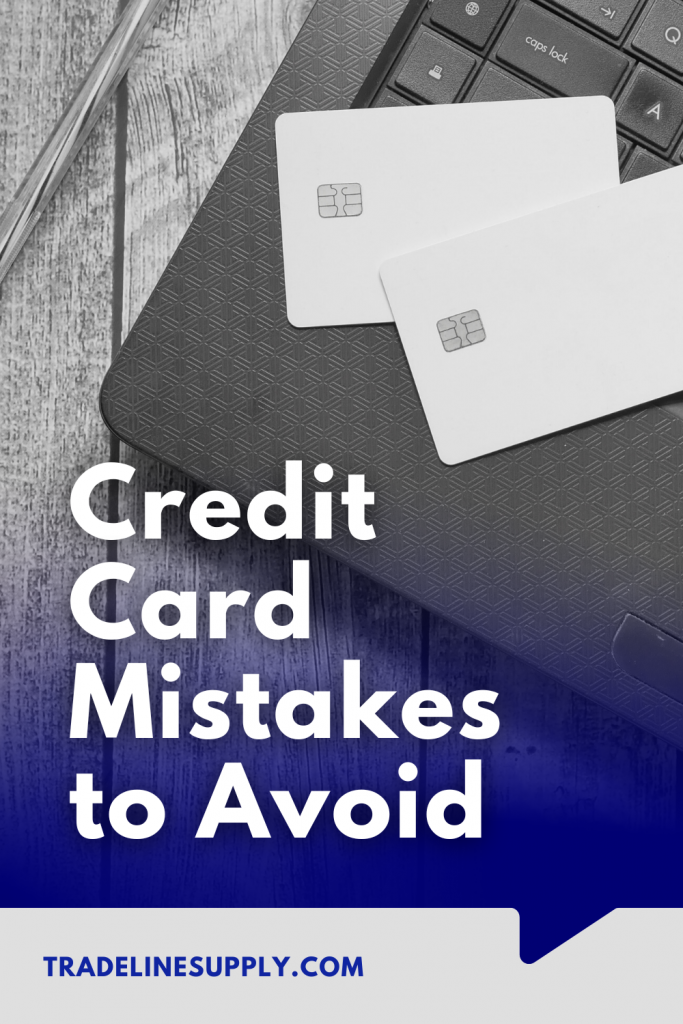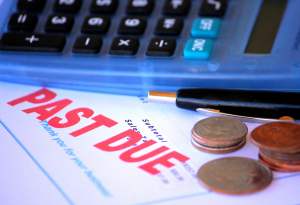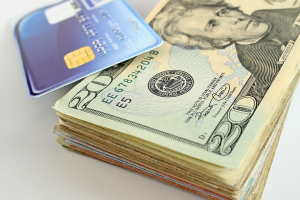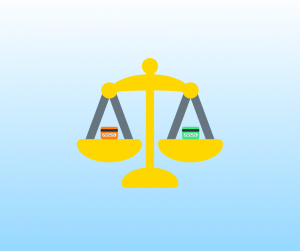Credit Card Mistakes to Avoid

Feelings in Finance—Your Empowerment Guide
08/05/2024
Back to School: How to Pay for College Without Loans
08/23/2024 A credit card can be a helpful personal finance tool. When used correctly, a credit card can help you build credit and earn rewards for your spending. But it’s easy to make mistakes that have a lasting impact on your financial life when you start using a credit card.
A credit card can be a helpful personal finance tool. When used correctly, a credit card can help you build credit and earn rewards for your spending. But it’s easy to make mistakes that have a lasting impact on your financial life when you start using a credit card.
Unfortunately, the mistakes can eat away at your budget and your credit scores. Let’s explore the most common credit card mistakes and what you can do to avoid them.
Credit Card Debt Is a Slippery Slope
According to the latest information from the Federal Reserve, as of June 2024, Americans have a collective total of $1.14 trillion in credit card debt. That’s an overwhelming number when you consider the entire U.S. population.
But even when broken down to the household level, the numbers are daunting. According to data from Experian, in the third quarter of 2023, American consumers held an average of $6,501 in credit card debt. That’s quite a hefty sum considering the notoriously high interest rates associated with credit card balances.
It’s unlikely that any of these credit card debt-holders intended to take on this high-interest debt. In many cases, it starts with an unexpected expense that is easy to cover with your credit card limit. In other cases, extra charges here and there start to add up.
12 Credit Card Mistakes to Avoid
If you want to take advantage of the benefits a credit card can provide without slipping into debt, understanding what mistakes may be lurking around the corner can be helpful. Although keeping your credit card balance under control is often easier said than done, it’s worth taking on this challenge for your financial well-being and peace of mind.
Here’s a closer look at the top credit card mistakes to avoid. If you can stay away from these mistakes, you’ll be well on your way to an enjoyable credit card experience.
Spending More Than You Can Afford
When you open a credit card, the issuer will set a credit limit.
Essentially, the limit is the total amount that you are able to spend on the card. So, if you have a $10,000 limit, you can spend up to $10,000 on the card. But just because the issuer gave you that credit limit, doesn’t mean you should spend that much.
In fact, most of us can’t actually afford to spend up to the limit. That’s especially true when you consider the sky-high interest rate attached to most credit card balances.
Instead of spending up to the limit, you’ll need to decide for yourself how much you can afford to spend on your credit card.
Ideally, you shouldn’t spend any money that you don’t have ready to pay off the balance. So, if you had $5,000 in your checking account, then you wouldn’t spend more than that.
Of course, sticking to only spending on what you can actually afford isn’t always easy. But if you stick to this rule, you won’t run into credit card debt issues.
Skipping a Budget
A budget is the cornerstone of a healthy financial life. That’s especially true if you want to avoid credit card debt.
When building out a budget, you can build in your basic needs, wants, and future goals. Without a budget, your spending is unlikely to align with your needs or future goals. After all, most of us are tempted to spring for ‘fun’ purchases.
Instead of simply reaching for your credit card when a fun opportunity comes along, build a budget that leaves breathing room for ‘fun money.’ With that fun money category safely built into your budget, sliding into credit card debt for a splurge is less likely.
Budgeting is one of the first money habits to master. Here’s where you can learn more.
Chasing Rewards
A rewards credit card can have some rather enticing opportunities. Whether your rewards card comes with cash back or travel reward points, it can be tempting to overspend in order to unlock those points.
But overspending with your credit card is one of the biggest mistakes that you can make. With that, chasing rewards with spending you weren’t planning to do is something to avoid.
Although everyone wants to stack up their rewards, it shouldn’t come at the cost of overspending. When you overspend, the rewards you earn likely won’t make up for the heavy financial toll overspending can take.
Not Making the Most of Your Rewards
The rewards attached to your credit card can add up quickly. For many of us, the lure of rewards is why we opened a credit card in the first place. So, don’t forget to make the most of any reward opportunities attached to your credit card.
Of course, you shouldn’t spend anything extra to unlock rewards. But if you were already going to make a purchase, why not get rewarded for it?
If you have a rewards credit card, don’t forget to tap into any available rewards. Every little bit can help you stretch your budget a bit further.
Personally, I’m a big fan of credit card rewards. I mainly stick to travel rewards credit cards to push my travel budget a little bit further. But the right rewards card for you will vary based on your goals. For example, you might want a cash back credit card to squeeze every penny out of your budget.
Not Asking for a Credit Limit Increase
For credit card users who aren’t tempted to overspend, not asking for a credit limit increase is a mistake. That’s because your credit utilization ratio is a key factor in your credit score, accounting for around 30% of your FICO score.
You can determine your credit utilization ratio by dividing the amount you owe by your credit limit. For example, let’s say that your credit card has a $10,000 limit. If you have a $6,000 balance on that credit card, then your credit utilization ratio would be 60%.
So, raising your credit limit can help you maintain a lower credit utilization ratio. In turn, this can help you improve your credit score. Most experts recommend keeping your credit utilization ratio at 30% or lower. Otherwise, the ratio could have a negative impact on your credit scores.
Making Late Payments
A history of on-time payments is even more important than your credit utilization ratio when it comes to your credit scores. In fact, your payment history accounts for 35% of your FICO scores. That makes it the most important factor in your credit scores.
If you make your credit card payments late, you’ll run into several negative impacts.
In most cases, you’ll encounter a late payment fee. Additionally, a late payment will be a hit to your credit score. Unfortunately, that kind of negative information can stick around on your credit report for seven years.
Of course, life can get busy. But if you are prone to missing payments, then consider setting up automatic payments or a payment reminder.
Only Making the Minimum Payment
When you receive your credit card statement, you’ll see both the balance and the minimum payment. The minimum payment is the smallest allowable payment to keep your credit card in good standing. With that, making the minimum payments on time means that you won’t have any late payments popping up on your credit report.
But only making the minimum payment is a big mistake. If you only make this relatively small minimum payment, it can take a very long time to pay off your credit card balance. That’s due to the interest charges you’ll encounter on the rest of your balance.
The reality is that it can take months or years to pay off your credit card debt if you only stick to the minimum payment. In the best-case scenario, you’ll pay off your entire credit card balance each month. But if that’s not a possibility, make the largest payment you can.
Applying for the Wrong Credit Card
Not all credit cards are created equally. Before you fill out a credit card application, you’ll need to make sure that you have chosen the right credit card for your situation.
So, how can you find the right credit card? It starts by taking a realistic look at your credit score.
If you have an excellent credit score, then a top-end rewards card might be right up your alley. But if you are at the beginning of your credit building journey, then a credit card designed to help you build credit will be a better fit.
For those with bad credit, check out this list of credit cards that are ready to work with you.
Carrying a Balance
Carrying a credit card balance will not help you build credit. Although that’s a relatively common misconception, you shouldn’t be carrying a balance if you can help it.
When you carry a balance, you’ll face expensive interest charges. If possible, make an on-time payment for your entire balance each month. If you aren’t able to pay off your entire balance in one month, make paying off that balance a priority for the next month.
Taking a Cash Advance
One of the biggest mistakes to make with your credit card is to take out a cash advance. That’s because of the interest rate and fees attached to the advance.
In most cases, you’ll pay a cash advance fee. It’s usually around 5% of the advance amount. Once you take out the advance, you’ll start accruing interest on that balance immediately. Without the grace period, your cash advance can get expensive very quickly.
Closing Your Credit Cards
Think twice before closing your credit card account. Although you might want to eliminate a card from your wallet, the cancellation can impact your credit score.
That’s because one factor that your credit score considers is your credit utilization. Having a closed credit card account means you lose the value of its available credit, which will increase your utilization ratio.
If possible, consider keeping your credit cards open. But if the annual fees are too high, then canceling could still be the right move.
Skimming Over Your Billing Statement
Your credit card company will send you a billing statement each month. Although it’s tempting to skip ahead to paying your bill, it’s important to review the statement carefully.
Take a few minutes each month to review your statement transactions. If you spot anything that doesn’t look correct, it’s important to report the issue as soon as possible. Don’t let fraudsters get away with any transactions!
Need a Credit Refresh? Here’s What to Do
The cold hard truth is that making credit card mistakes can drag your credit score down. But the good news is that there are ways to improve your credit score.
Here’s what to do if you want to give your credit score a boost.
Make On-time Payments
A history of on-time payments is a key feature of a stellar credit report. If you have a credit account of any kind, make on-time payments a priority.
In the case of credit cards, even making your minimum monthly payment is enough to help your credit score. If you struggle with payment deadlines, then consider setting up an automatic payment option.
However, an automatic payment option won’t solve cash flow issues. If you aren’t able to make on-time payments due to a lack of funds, reach out to your lender as soon as possible. In some cases, your lender may be willing to work with you. It never hurts to ask for a reprieve.
Start a Budget
You might think of a budget as the dreaded “b-word.” But building a budget can transform your finances for the better.
The right budgeting style varies based on your personal preferences. At the very least, it should include a breakdown of your unavoidable expenses like rent and food. Plus, it should map out how much you plan to spend in a given category.
With a budget, you can build in your financial goals. So, if you make it a goal to pay off your credit card debt, you can map out what that will mean for your monthly budget. For example, you might decide to put $100 towards your debt every month. But that could mean giving up a night out with friends.
Take some time to build a budget that works for you. The results can have amazing results for your finances, and your credit score.
Credit Repair
Credit repair is a useful strategy for those with negative information on their credit report. Although you can’t remove accurate information, inaccurate information could be the reason behind your low credit score.
A reputable credit repair company will be able to help you remove inaccurate information that could be dragging your credit score down. You can purchase credit repair services or you can choose to repair your own credit for free.
Credit Tradelines
The shortcoming of credit repair is that it focuses on removing negative information. It doesn’t add any positive information to your credit report.
That’s when adding a credit tradeline can step in to help. A credit tradeline adds more information to your credit report.
If you want to add account history to your credit report, then consider getting credit tradelines.
The Bottom Line
When used responsibly, a credit card can help you build a good credit score. But when you make credit card mistakes, they can have a lasting impact on your personal finances and your credit.
If you don’t think you are ready for a credit card, that’s okay! It’s better to avoid one altogether than make a mistake that could hurt your credit score for years to come.






